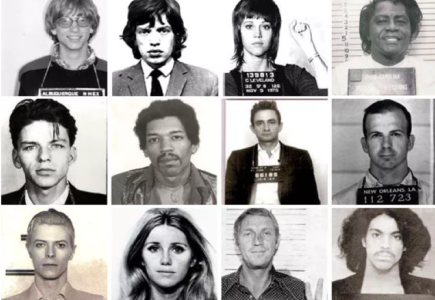Just how effective are your angry tweets and Facebook posts airing your grievances about your community? Your primary focus when posting was just to vent, right? Or maybe you were letting your followers know of some impending danger on that street after 11pm. You know the one; you avoid it when you’re alone because it’s just too sketchy to wander down without a friend. Well, turns out your neighborhood watch-like antics are reaching the right ears. LexisNexis released a survey in November reporting on Social Media in Law Enforcement over the course of 2014 which has shed some light on how helpful your posts are.
So what did this survey tell us? Well, 81 percent of the law enforcement professionals surveyed said they use social media for investigative purposes, 67 percent said that social media is valuable in anticipating crime, and 73 percent think using social media can help solve crimes. The survey indicated that investigations involving social media mediums grew in 2014, and 78 percent of respondents said they expect to use it even more next year.
PoliceOne.com published an article on how social media is a tool for keeping up with criminal activity. Cincinnati has been the earliest adopter of social media as a tool for investigations, specifically gang-related. With the help of social media during an extended investigation they dismantled a local gang, arresting 71 individuals. Rick Graham, who is a Law Enforcement Business Development Specialist for LexisNexis Risk Solutions told PoliceOne, “From Minnesota to New York, law enforcement officers are using social media in the pursuit of gang activities.” Citing that, “Social media is currently playing a part in the trial of three gang members in Louisiana.”
Other cities have fallen inline. Recently, Kansas City has used Twitter to alert citizens of wanted criminals or other vital information, as well as to receive tips. Police Chief Darryl Forté said, “It is the way of the times, and you are going to miss out on a lot of communications if you are not engaged in social media. There are 140 characters, but we can reach so many more people and such a broad range.” They didn’t stop there though: Kansas City police and other local law enforcement agencies have joined sites like Twitter, Facebook, Instagram, Next Door and other social media platforms to push crime alerts, seek help in solving crimes, and improve their image within their communities.
If your city’s police department doesn’t have a social media presence now, expect to see one soon. According to a survey by the International Association of Chiefs of Police taken in 2013, almost 95 percent of police agencies nationwide use some portal of social media, and about 80 percent of the law enforcement agencies surveyed indicated that social media have helped them solve crimes. In Sioux City, Iowa the Police Department used Facebook to publish a surveillance video of a robbery which led to the apprehension of the criminals.
Social media platforms are picking up on these new users, and responding in kind. Facebook has partnered with National Center for Missing and Exploited Children, meaning that Amber Alerts will now be issued on Facebook. This feature has attracted more law enforcement to this medium which, in turn, has had positive outcomes.
We’ve seen the Boston police use social media in their extensive search for the marathon bombers, and also used it to quell concerns over the course of the city wide shutdown. In addition, the Boston Police received two separate notifications of lewd acts taking place on the Massachusetts Bay Transit Association (MBTA) via their social media accounts, and used this information to apprehend the criminals (read more about this here). But the MBTA uses their Twitter for more than just addressing criminal behavior; @MBTA notifies riders about service alerts and other information about their commutes. They handle all complaints about delays, questions, information about medical emergencies, and inquiries about weather-related service disruptions.
So keep tweeting, posting, and blogging because from law enforcement to the people dispatching busses, your city is listening. But be careful of just what you’re putting out there, or you might end up like these people here.




